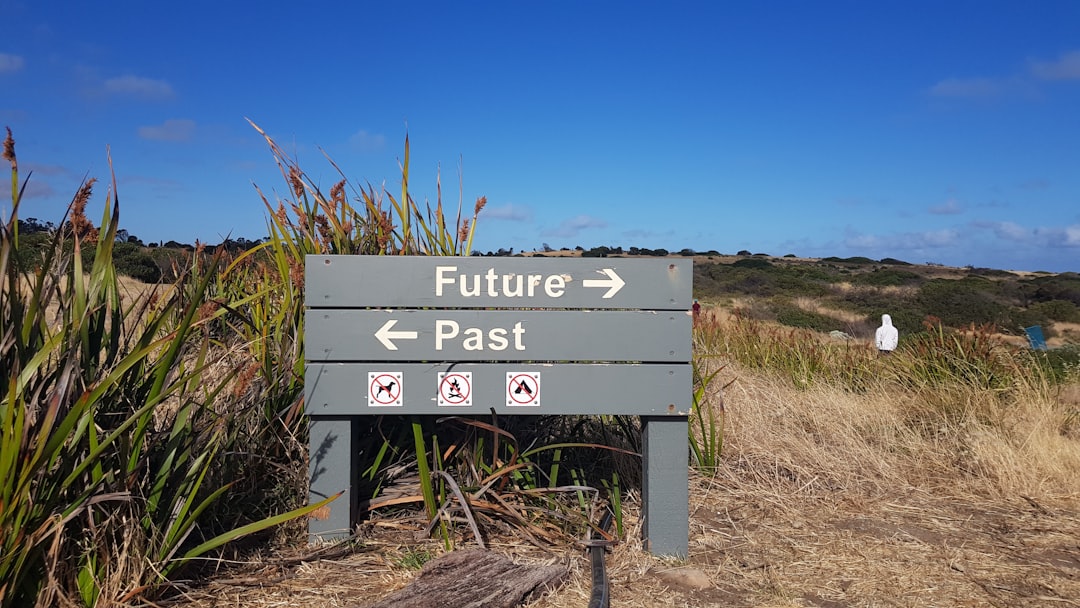Contesting the Past
And bringing it into the future

So last week I was writing about the need to resist the pervasive “back to normal” narrative across multiple fronts. As I wrote and thought about it my thinking took me from pushing back against the Covid narratives we’ve heard throughout the pandemic to combatting the general appeal to the past, aka resisting those who say we need to look backwards to an imagined or exaggerated golden era. The clearest example of this historically, and currently in the United States, is the frequent fascist refrain that claims we need to go back into the past, that our best days are behind us, that “wokeism” and all forms of social progress in society are taking us away from everything valuable and hurting us in the process. And while the rest of my piece last week was about how this is untrue, how the fascist imagination of the past is both deceptive and aimed at furthering oppression, and how anti-fascists and the left as a whole must put forward a vision that embraces moving forward and constructing a better world for our collective future, I failed to clarify the relationship we, the left, still need to have with the past. I obviously don’t have a monopoly on defining this relationship the left ought to have with the past, or the future, but I do see a lot of folks, myself included, not adequately discussing the past in order to focus almost exclusively on the future that we want to see, even need to see. And that can be a weak spot in our arguments, and in our vision. So today let’s talk about the past.
Not to refer to last week’s post too much here, but a bit of important context for today is knowing that the right loves claiming the past to be a time where everything was better and a time that we should strive to move back towards as a society. They do this both to appeal to a discontent with the present and to redirect that widespread discontent away from anger at the rich, away from capitalism more broadly, and channel it instead towards anger at people agitating for change and at more vulnerable populations. They want us angry at Black folks and people of color more broadly and queer folks and immigrants and the list goes, all instead of the people actually causing widespread problems, namely the people (and systems) in power. So our job is not only to direct anger into organizing against capitalism and white supremacy, but also to combat this right wing claim to the past. It’s important to highlight this because although a lot us know that we have to contest the future in the present, fewer people appear to see how we also have to contest it in the past.
If you were to tell the proverbial person on the street that there were some ways in which the world was better a few decades ago than it is today, most would agree without thinking. For a lot of folks what might come to mind is the world of their childhood, twenty, thirty, fifty years ago when things seemed simpler. The trouble comes when we begin to struggle over what is responsible for what was good about the world then, what was responsible for the bad elements of that time, and what is going wrong in our current moment. The right seeks to erase the root causes of our current struggles in part by erasing the problems of the past and relatedly by intentionally obscuring the sources of our current decline. Of course, they also ignore or even celebrate the past strength of patriarchy, white supremacy, colonialism, and other forms of oppression, but when it comes to things that we can agree were better about the past, like a slower pace of life or more robust communities, the right works to hide the roles of capitalism and racism and patriarchy in taking these things from us.
The clearest, albeit a rather strange, example of this attempt to frame the erosion of what was good about the past as a nefarious liberal conspiracy can be seen from a slew of social media accounts, mostly with Greek or Roman statue avatars, masquerading as “cultural tutors“ or art historians. It might seem like an unlikely way to spread an insidious ideology, but there are a remarkable number of these accounts all posting architecture from the 17th and 18th centuries and contrasting it with the bleakness of modern architecture. And I agree, architecture has gone downhill, but when I discuss it I think of cost cutting measures and trends in the market and in conceptions of style and beauty as opposed to how this strange cohort of accounts often frames their contrasting images with lines such as “they’re trying to demoralize us” or “look at what they took from us.” It’s worth noting the undefined “they” that is typically used, because it allows the reader to fill in the unnamed party ruining our lives (or at least our buildings) rather than naming the actual systems responsible for these changes. Another common theme of these accounts is the country versus the city. You can often see them posting pastoral images or main streets of small quaint European towns with captions such as “leave cities.” And that might feel benign to you. The individuals who run these accounts would certainly agree, claiming that there’s nothing more than to it an affinity for small villages, or European architecture 150 years ago. But even in those two examples you start to see that there’s no consistency here. Do they want people living in the Alps as shepherds or do they want people to go back to Paris in the 1850s? The answer really is neither, they just want to consistently drum up dissatisfaction with the present and amplify the desire to move back into the past. And that generalized, unspecified dissatisfaction is great fuel for fascism. I know it might seem like a stretch, but when you look at the other biggest source of this vague dissatisfaction with the present, when you look to see who else is constantly stirring up anger at progress and change, it’s the ecosystem of right wing talking heads and their drumbeat of anti-wokeness. Much like this odd network of social media accounts, the conservative network of talking heads encourages us to believe that the cure for our present ills is an unthinking return to the past, with the implication being that change itself is the problem. Therefore, this rhetoric or line of pseudo-argumentation refuses to acknowledge how many societal changes have occurred that are positive and beneficial for many people, while simultaneously trying to prevent us from looking at what is pushing those changes that are in fact harmful. In so far as there is any discussion about the causes of change it’s loosely attributed to social progress, feminism, anti-racism and queerness etc.

I don’t want to get stuck in just diagnosing the problem, but I did want to set the stage for the rest of this little essay by being clear that there’s a concerted attempt to make us angry at the present state of things, and to say that the cure is a return to the past. Now, an unquestioning return to the past, specifically one that seeks social regression, would not actually address the core problems that affect and motivate most people’s dissatisfaction with the present. To put it simply it wouldn’t address the massive role that racial capitalism has played in transforming and hurting so many lives, and ways of life. If, for example, you wanted to meaningfully address what has happened to make a lot of small towns and villages harder places to survive, and were actually concerned with the mass migration from rural areas to big cities, you would have to talk about capitalism and racial dynamics. But the right is not actually concerned with addressing these very real issues, they’re concerned with turning widespread discontentment into their own power, so it’s up to us to be meaningfully concerned with the ways that capitalism, neoliberalism, and other forces have created the present, and trace those roots back through history in order to reclaim the past and the many, infinite narratives that exist there.
The first thing this requires, in my opinion, is engaging with what was good about the past. Folks on the left, myself included, have a tendency to rightfully focus on systems of injustice and oppression currently and through history. But as vital as it is to explain and dismantle systems of oppression, and pull them out by their historical roots, we can’t let this process prevent us from simultaneously contesting the ways in which elements of the past may have been superior to the present. As we examine and confront so much of what was hurtful or simply wrong in the past, we can’t let that process lead us to miss the ways in which pre-capitalist or even early capitalist life has lessons and values and elements that we might rightfully seek to go back to. Over-simplifying or outright dismissing the past can alienate us from people and from ways of life, as well as leaving us feel unrooted or unmoored and without precedents to learn from. I think those of us who have some feeling of grounded-ness, or a strong foundation, or a sense of clarity about the direction the future ought to take can forget how many people feel as if everything is uncertain. I know it may sound like there’s some conceit in that sentence, but I think it’s extremely important to acknowledge just how many people are grasping for something to hold onto right now. For a lot of people this search for grounding coincides with a move to the left, because we have a vision for the future that’s honest and caring and based in providing for what people need. But at the same time we see people who react to the chaos of the present not by moving left but by embracing the right, embracing the perception of stability that comes with a movement that weaponizes the past to deceptively say, “here you can find stability, here you can find what’s familiar to you.”
I’m one of the people who used to think that the left would always have more trouble in this contest of past vs. future. The future is uncertain, and even when we articulate a clear vision of a better tomorrow where we can thrive rather than struggle to get by that vision is still a possibility at best, rather than the real experiences people recall in their own pasts, and the world that they’ve already seen in existence. But what I was missing is that this cedes the past, and fails to articulate the fact that it was racial capitalism and the right that took away those elements of the past that were in fact better than the present. A lot of us have seen graphs tracing how fifty years ago CEOs made 20x what the average worker makes, and how that ratio has grown to approximately 250x the average worker’s compensation. So while folks might fantasize about a return to the past, the people leading that charge are often huge fans of Reaganism and the accumulation of the wealth among the super-rich at the expense of everyone else. What prosperity working people did have in the fifties and sixties and seventies was built brick by brick by unions, in other words by the workers themselves. Engaging in a simple discussion around these economic trends in the last fifty years, specifically with folks who are uncertain about the past, the left, and the future, is just one example of how we can contest the past, and win.
To win a meaningful victory we can’t contest the past simply by painting a rosy picture of it, however. The wealth of the white working class in the middle of the twentieth century was built largely through labor organizing, but often in unions that excluded folks on the basis of race and all within a broader system that segregated and oppressed Black folks and people of color. In contesting the past, we can and must discuss it honestly. What sometime seems missing in honest but rushed discussions of history is that through looking back we can not only see the extent of oppressive systems and their harms, but we can also see how they were built and in doing so learn how to dismantle and unlearn that which has done and often continues to do so much damage. Without an intervention into the systematic creation of white supremacy, for example, we risk reifying race rather than examining it as a construct which can and must be deconstructed. And when we do intervene to clarify and contest false narratives from history, we can trace the threads we pull out into the present, and ultimately into the future, unlike the right who simply seeks to loop the distorted threads they cling to back into the past.
And there on many threads the left can grasp onto. I think often of the multiple times I’ve been discussing mutual aid with people I organize with in New York or with classmates or folks in my communities and the concept has come up that when they were growing up neighbors simply used to give them a few bucks when their families needed it, or drop off food when someone was sick, etc. In other words mutual aid was so baked in that no one had a word for it, it was just life. And that still happens today across a lot of neighborhoods and towns and communities, but there’s no denying that capitalist-driven change has also isolated more people, fractured communities, taken the surplus wealth folks used to use in these endeavors, and warped our mentalities around community and care for one another. So as we reach back into the past we can and should bring forward the ethos of community back. We can and should go back to certain values and mentalities, in order to incorporate them into our lives today. Likewise, there are traditions we ought to look to, and bring back. For some that might be celebrating the solstice and connecting with the rhythms of the natural world. For others it might be preserving and upholding spiritual practices handed down from generation to generation and fortifying them against the turbulence of change as best they can. For others maybe it’s uplifting a set of values that has stood the test of time, and can continue to be a beacon amidst uncertainty.
These guideposts, traditions, and values are not incompatible with change and with moving into a better future. Yes, it requires discernment to decide which to bring with us in building a better society, and I don’t believe in adopting them unquestioningly or uncritically. But I also don’t believe in running into a future unmoored from the past. For one, I don’t believe it entirely possible, in addition to the fact that although I might lean more in the direction of radical change than most people, I also believe in learning from the past and in the value of being both grounded and flexible, rooted and changing at the same time.
As Octavia Butler wrote:
“To survive, Let the past Teach you— Past customs, Struggles, Leaders and thinkers. Let These Help you. Let them inspire you, Warn you, Give you strength. But beware: God is Change." - Earthseed: The Book of the Living, verse 64
I have nothing more to add to her words, at the moment, so thank you for reading and I hope to keep exploring with you into the future, and the past. Cheers, Josh


